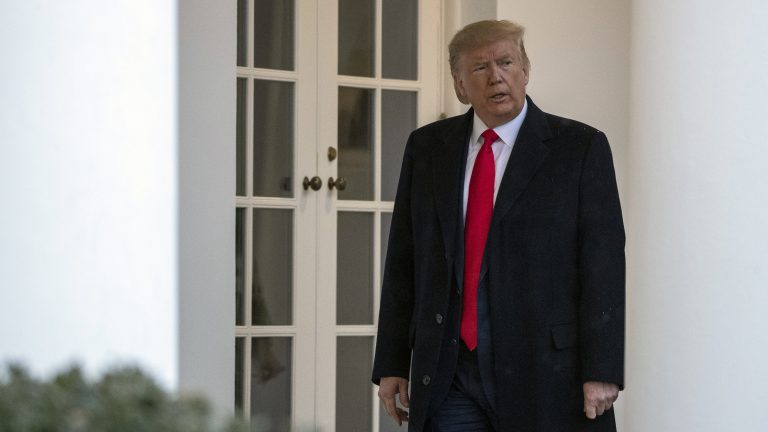President Trump is expected to make a statement Wednesday morning, hours after Iran launched missile strikes against U.S. military and coalition forces in Iraq in apparent retaliation for the killing of Qassem Soleimani, the Iranian military commander.
“All is well! Missiles launched from Iran at two military bases located in Iraq,” Trump said in a tweet late Tuesday. “Assessment of casualties & damages taking place now. So far, so good!”
All is well! Missiles launched from Iran at two military bases located in Iraq. Assessment of casualties & damages taking place now. So far, so good! We have the most powerful and well equipped military anywhere in the world, by far! I will be making a statement tomorrow morning.
— Donald J. Trump (@realDonaldTrump) January 8, 2020
If there are no American casualties, there could be a way for the two countries to deescalate from rising tensions that have led to speculation about an armed conflict. Trump had previously warned that “if Iran wants to fight, that will be the official end of Iran.”
The president’s Tuesday night tweet follows days of tensions that began last week as Iran-backed Iraqi militiamen and their supporters targeted the U.S. Embassy in Baghdad, setting fires and damaging a perimeter gatehouse at the complex.
Days later, the U.S. killed Soleimani, who was visiting Baghdad, along with a senior leader of a Shia militia group. Earlier this week, Trump said that the U.S. would strike Iranian sites, including cultural ones, if the Islamic Republic retaliated. The Pentagon and other officials have since walked back those remarks.
In the days after the Soleimani strike, the Trump administration faced domestic political criticism over the lack of transparency following the operation. The administration maintained that the U.S. faced an imminent threat, however.
“If you’re looking for imminence, you need look no further than the days that led up to the strike,” U.S. Secretary of State Mike Pompeo said Tuesday, alluding to the violent protests outside the U.S. embassy.
Relations between the U.S. and Iran have been fraught since the 1979 Islamic Revolution, but they have deteriorated sharply since the Trump administration withdrew from the nuclear deal that Tehran signed with the world’s powers in 2015. The Trump administration maintained that the agreement gave Iran too much in exchange for too little — and subsequently imposed harsh sanctions designed to squeeze Iran’s already moribund economy.
Since Soleimani’s killing, Iran has said it will no longer abide by the restrictions imposed on its nuclear program by the deal, but added that its decision is reversible if the other signatories to the accord — Britain, China, France, Germany, Russia and the European Union — provide it economic benefits.
9(MDM5MjE5NTg1MDE1Mjk1MTM5NjlkMzI1ZQ000))

